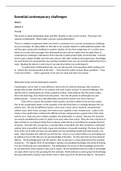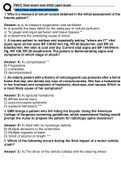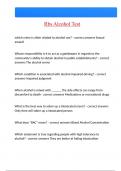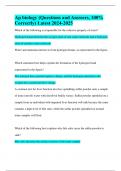Samenvatting
De complete samenvatting van Essential contemporary challenges.
Hierin staan alle samenvattingen van de lectures, tutorials en alle literatuur op een overzichtelijke manier samengevat en ingedeeld per week. Als je op een goede manier wil leren, dan is dit de beste mogelijkheid.
[Meer zien]













